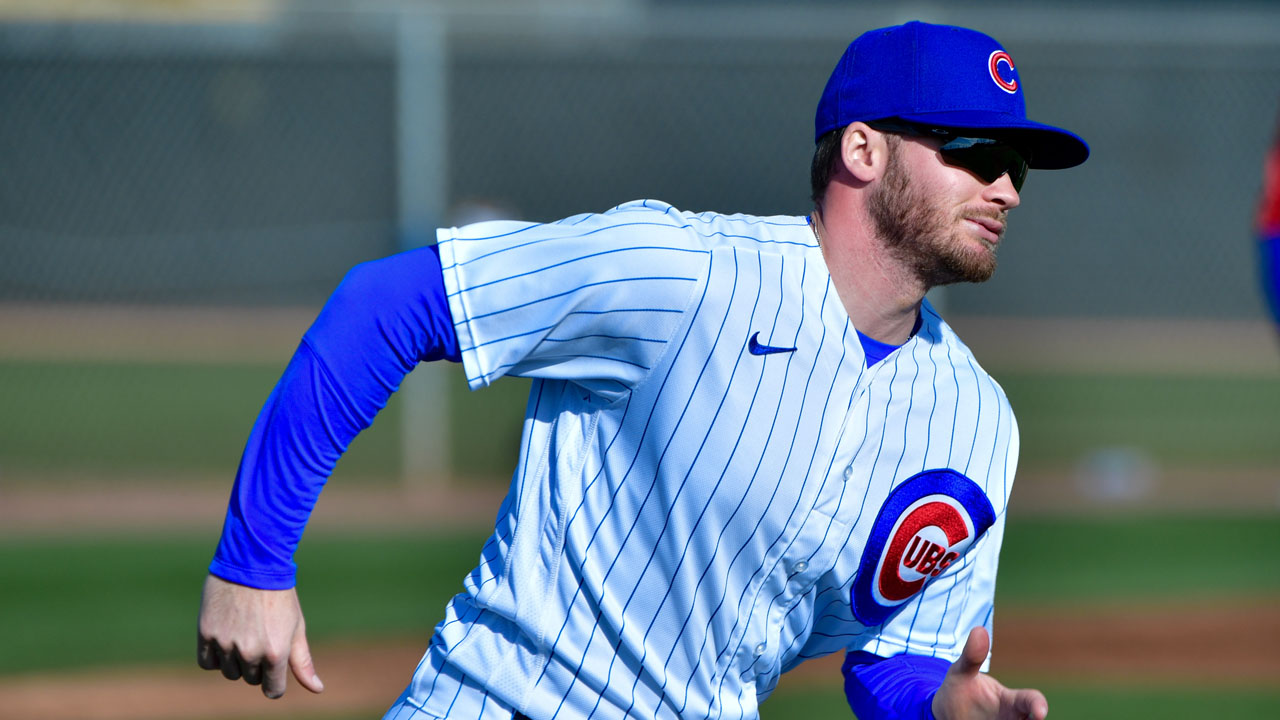
For all of 2020’s tragedies and hurdles, it was also a year of professional growth for Cubs centerfielder Ian Happ.
He became an everyday outfielder. He claimed the leadoff spot in the batting order. But most apparent on Tuesday was the way he’d settled into his role as team representative for the MLB Players Association.
The day before, Kevin Mather resigned as Mariners president and CEO after a video of his recent address to a Seattle-area rotary club elicited outrage. In it, he belittled a Dominican player’s English skills and complained about having to pay for a Japanese former pitcher’s interpreter.
Mather spoke dismissively about a top prospect choosing to “bet on himself” rather than accept a six-year extension. He talked openly about service time manipulation.
“I think this is something that players have known for a long time has been happening in different places, at different times,” Happ said in a Zoom press conference Tuesday. “Not just with the service time manipulation, but with the way free agency is viewed, and with just a number of the issues that were talked about. It’s not something that players are unaware of. And I’m glad that fans and more people are able to hear that and process it because as a fan of the game, you don’t want to think of your favorite players being viewed that way.”
Happ took over for Kris Bryant as the Cubs player representative ahead of last season, after previously serving as assistant player rep. Which meant Happ added to his responsibilities in time for contentious negations between MLB and its players association.
First, the two sides were unable to come to a restart agreement last summer, instead settling for a 60-game season set by commissioner Rob Manfred. Then this offseason, they went back-and forth on whether to delay spring training before ultimately starting on time. Now this video of Mather has gone public.
In his opening remarks to the Belleview Breakfast Rotary Club, Mather said the Mariners took a risk in sending their top prospects to their alternate site in 2020. If the big-league squad had a COVID-19 outbreak, he said, “there was no chance you were going to see these young players at T-Mobile Park. We weren’t going to put them on the 40-man roster. We weren’t going to start the service time clock.”
On the subject of free agency, Mather added, “We (MLB) lost $2.9 billion last year, and we have taken the position that there are 180 free agents still out there on Feb. 5 unsigned, and sooner or later, these players are going to turn their hat over and come hat in hand looking for a contract.”
Happ didn’t sound surprised. Service time manipulation, or keeping a prospect in the minor leagues to delay free agency, is an open secret in Major League Baseball. And, amidst a pandemic, the free agent market was slow again this year.
“I think that it’s a good thing that the fans can see some of the underbelly of the game and some of the issues that we have, especially leading into the end of this year and into a bargaining cycle,” Happ said. “It’s unfortunate that that is how a number of people think on the other side and in and around baseball. I don’t think that that’s an isolated incident, and I think that it’s very important that people understand that. I hope that both sides can work together to improve that because the system allows for it.”
Another round of collective bargaining is coming up, with the current CBA expiring after this year. Happ said it’s hard to predict exactly how Mather’s comments will affect those negotiations.
“The issues that you saw on that call that were discussed, that were things that are unacceptable in our game,” Happ said, “are core principles that that players just completely and totally disagree with.

